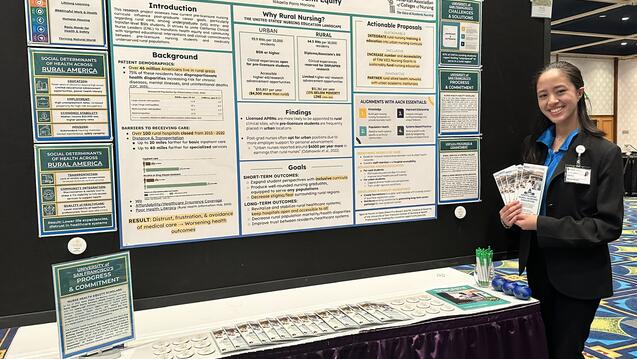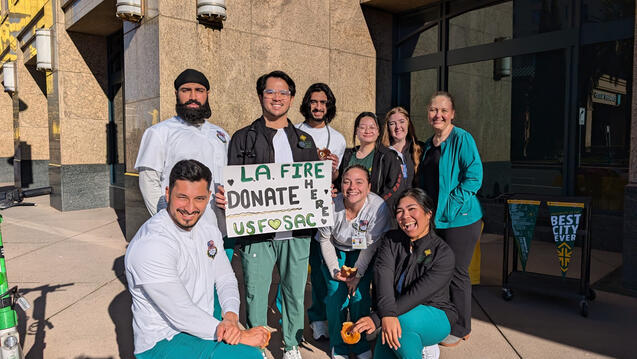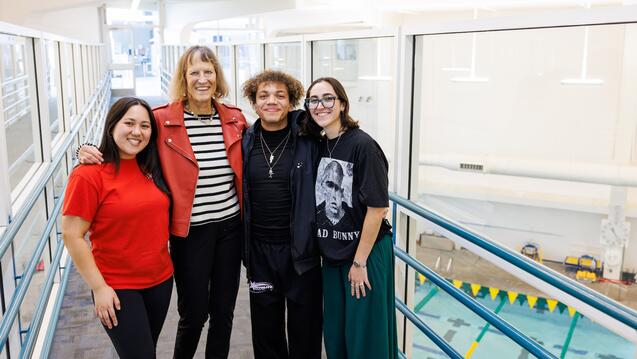Research in the Public Interest

Annette Regan published “Maternal Pertussis Vaccination, Infant Immunization, and Risk of Pertussis” in the November 2023 Pediatrics, the American Academy of Pediatrics publication.
“We are pleased to share these research findings with the community. Our goal is to provide reliable information to help parents make decisions about vaccines,” said Regan. “Our study showed that receiving a pertussis vaccine during pregnancy protects babies against a life-threatening disease. Pertussis vaccine is recommended during every pregnancy, and we hope this information helps families make vaccine decisions during their next pregnancy.”
Regan also presented “Advanced Methods in Vaccine Safety” during the Annual Conference of the International Society for Pharmacoepidemiology in Halifax, Canada, and had a poster presentation along with MPH alumnus Brianna Agnew and Professor Marie-Claude Couture on “Systematic Review of COVID-19 Vaccine Decision-Making and Uptake Among Adolescents Aged 12 to 17 years old” at the Society for Epidemiologic Research Meeting in Portland, Oregon. “My research uses a community-partnered research approach guided by the Reproductive Justice (RJ) framework,” said Alice Fiddian-Green. “Reproductive justice is defined by Sister Song Women of Color Reproductive Justice Collective as the ‘human right to maintain personal bodily autonomy, have children, not have children, and parent the children we have in safe and sustainable communities.’ In my work, I pursue reproductive justice to provide access to comprehensive reproductive health care, affordable housing, livable wages, job security, safe homes, safe communities, anti-racism, and anti-violence.”
Through participatory public health storytelling research, Fiddian-Green examines public health issues and identifies sustainable and systemic solutions to health inequities. “I work alongside marginalized and minoritized communities to collaboratively develop solutions that promote health and address social inequalities. Storytelling approaches take research outside of the academy, and are crucial for public scholarship, health equity, and social change. By using public health storytelling methods, I prioritize community-driven solutions to health inequities that promote empathy, equity, and collective social change.”


